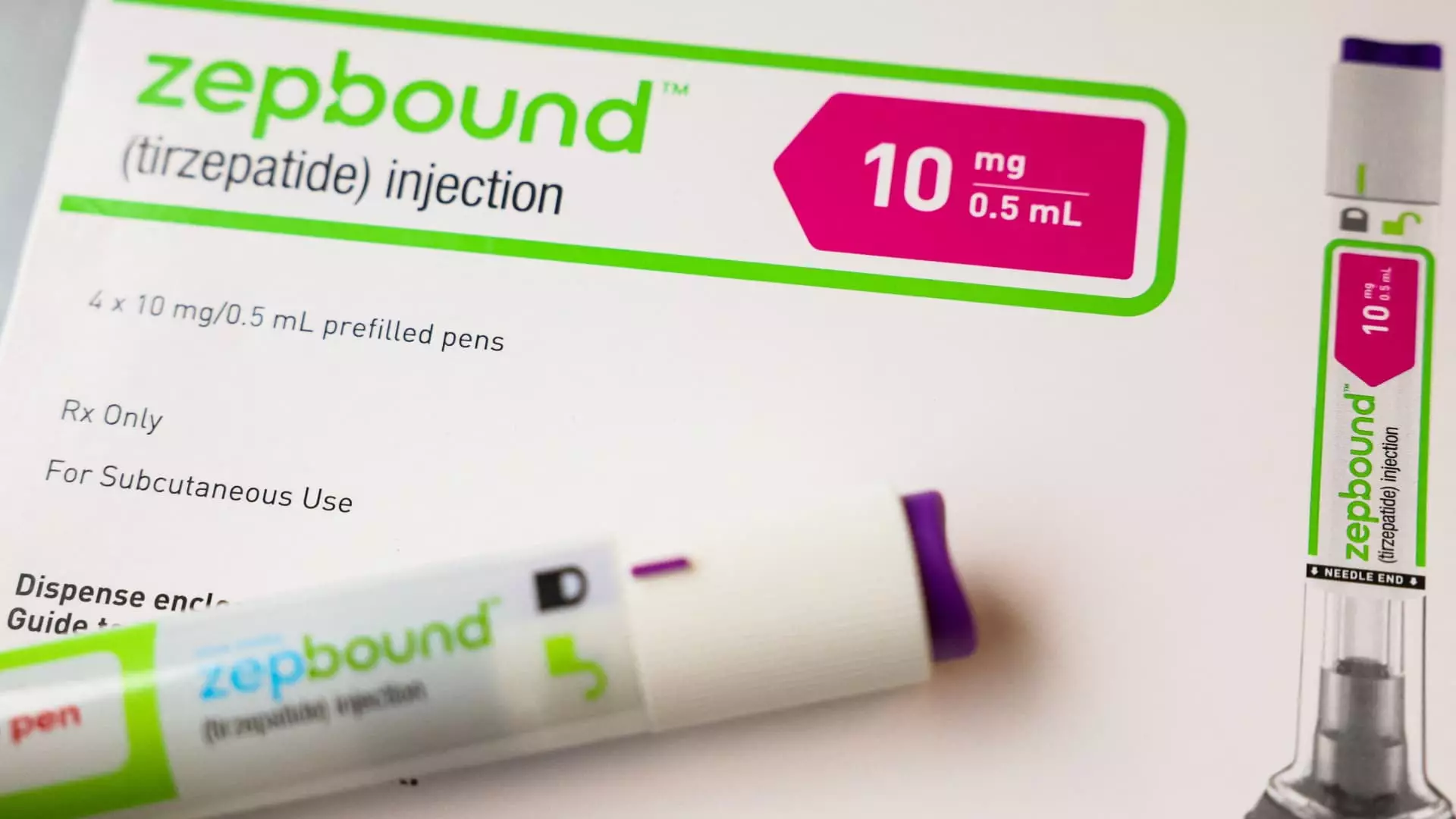In a significant shift designed to improve healthcare accessibility, Eli Lilly has announced the release of higher doses of its weight loss medication Zepbound in single-dose vials. Notably, these vials are priced at approximately 50% less than the regular monthly list price, opening a doorway for patients without insurance coverage, particularly those enrolled in Medicare. The move aims not only to expand the reach of Zepbound amid a surge in demand but also to mitigate the issues surrounding inferior compounded alternatives that previously emerged due to medication shortages. This innovative approach is poised to reshape the landscape of diabetes and obesity treatment.
Eli Lilly’s foray into the self-pay pharmacy model via its direct-to-consumer platform, LillyDirect, reflects a growing trend in the pharmaceutical industry, where companies are looking for ways to alleviate the financial burden of essential medications. As the company’s president for diabetes and obesity, Patrik Jonsson, articulates, there is a pressing need to fill the gap in coverage for obesity treatments, which have historically been undervalued in terms of insurance needs. The new 7.5 milligram and 10 milligram vials of Zepbound are priced at $499 upon the initial prescription and $599 and $699 for refills respectively, which poses a viable option for many patients seeking legitimate remedies for obesity-related conditions.
Eli Lilly’s initiative to provide Zepbound in single-dose vials aligns with its ongoing efforts to ramp up U.S. supply in response to an escalating demand for the drug. With healthcare providers diagnosing obesity and related ailments, the higher doses aim to bolster treatment options, making it imperative that eligible patients secure authentic products rather than relying on questionable substitutes from compounding pharmacies. The undeniable reality is that previously, some patients faced the dire decision of turning to these unregulated alternatives due to the previously high costs and limited availability of Zepbound.
In conjunction with the higher-dose releases, Eli Lilly has opted to reduce the prices of lower-dose vials, a strategy that could enhance affordability in a market that has been criticized for placing profits over patient care. The 2.5 milligram and 5 milligram vials now cost $349 and $499 respectively, providing financial relief that resonates with individuals covered by Medicare or employer-sponsored plans that offer zero coverage for obesity treatments. Patients who utilize these vials are required to self-administer the medication, in contrast to the more user-friendly autoinjector pens; albeit, this need for self-injection could act as a deterrent for some.
The implications of Eli Lilly’s actions extend well beyond immediate financial transactions; they initiate a broader conversation about the inclusion of obesity medications under Medicare. Jonsson points out the urgent need for the current administration to advocate for the inclusion of obesity treatments as standard coverage. Such a fundamental change could alleviate a significant burden for patients who currently lack access to necessary medications. Jonsson expressed hope for policy progress while underscoring an essential aspect of the company’s vision: ensuring that patients do not default to unsafe alternatives.
The streamlined production of single-dose vials offers Eli Lilly a practical edge over the more complex autoinjector manufacturing process, which is often fraught with challenges and costs upwards of $1,000 a month before insurance. Recent reports indicate that the U.S. Food and Drug Administration has resolved the prior shortage of Zepbound, allowing for a potential slowdown in the illicit compounding gremlins that plagued the market earlier. Eli Lilly remains steadfast against pricing competition with these unauthorized compounding pharmacies, committing instead to prioritize patient safety and the efficacy of their approved medication.
Eli Lilly’s recent advancements surrounding Zepbound signal a commendable effort toward improving access to essential medication for patients battling obesity. Through the introduction of more affordable pricing structures and innovative self-pay pharmacy options, Eli Lilly has positioned itself as a pioneer in the weight loss pharmaceutical sector. As the healthcare landscape evolves, initiatives like these could serve as pivotal turning points that drive not only corporate responsibility but also systemic change in the treatment of chronic conditions such as obesity. The hope remains that these efforts will catalyze a shift towards comprehensive coverage and greater acknowledgment of the complexities surrounding obesity treatment in our healthcare system.

